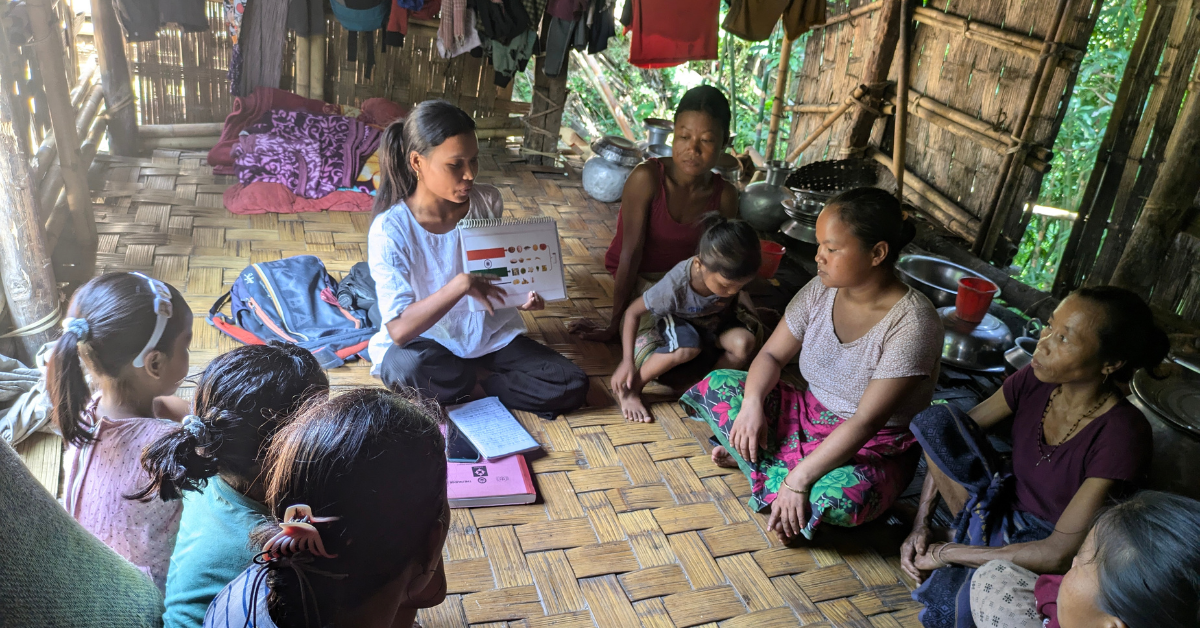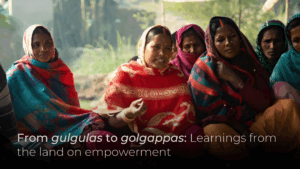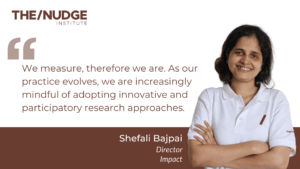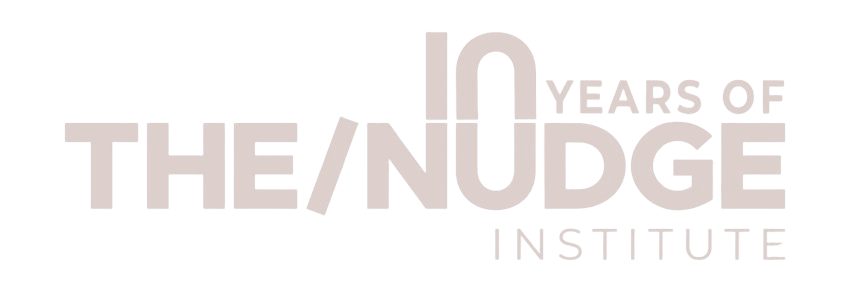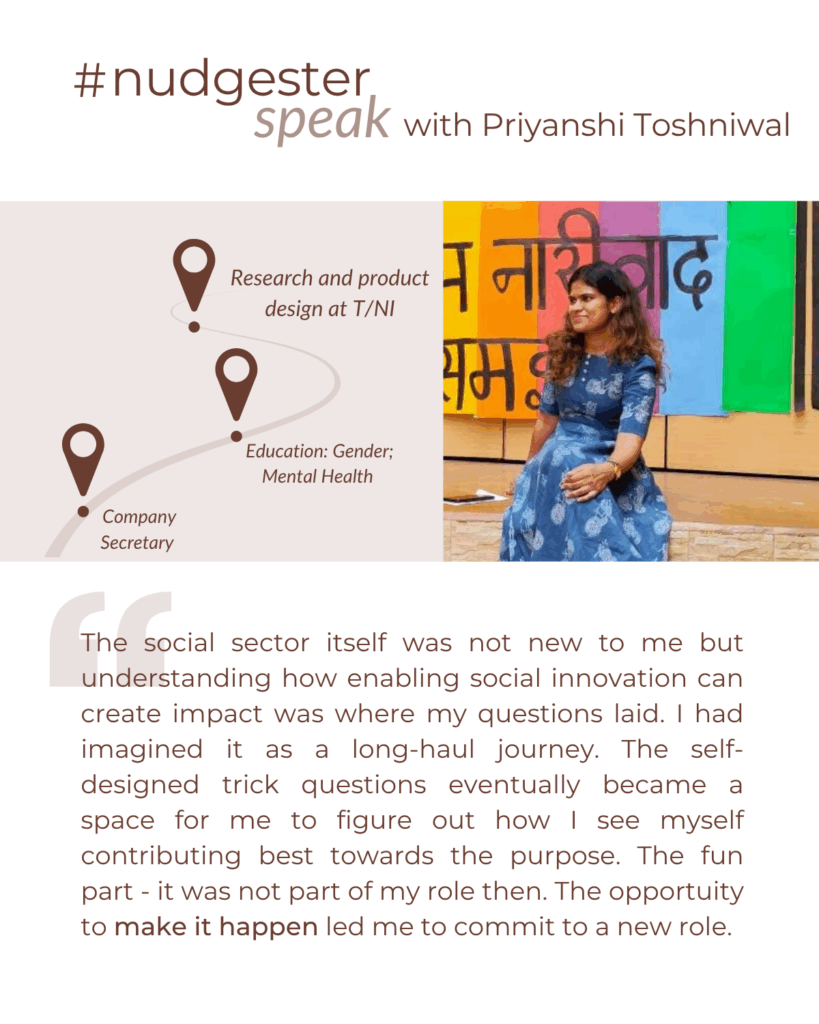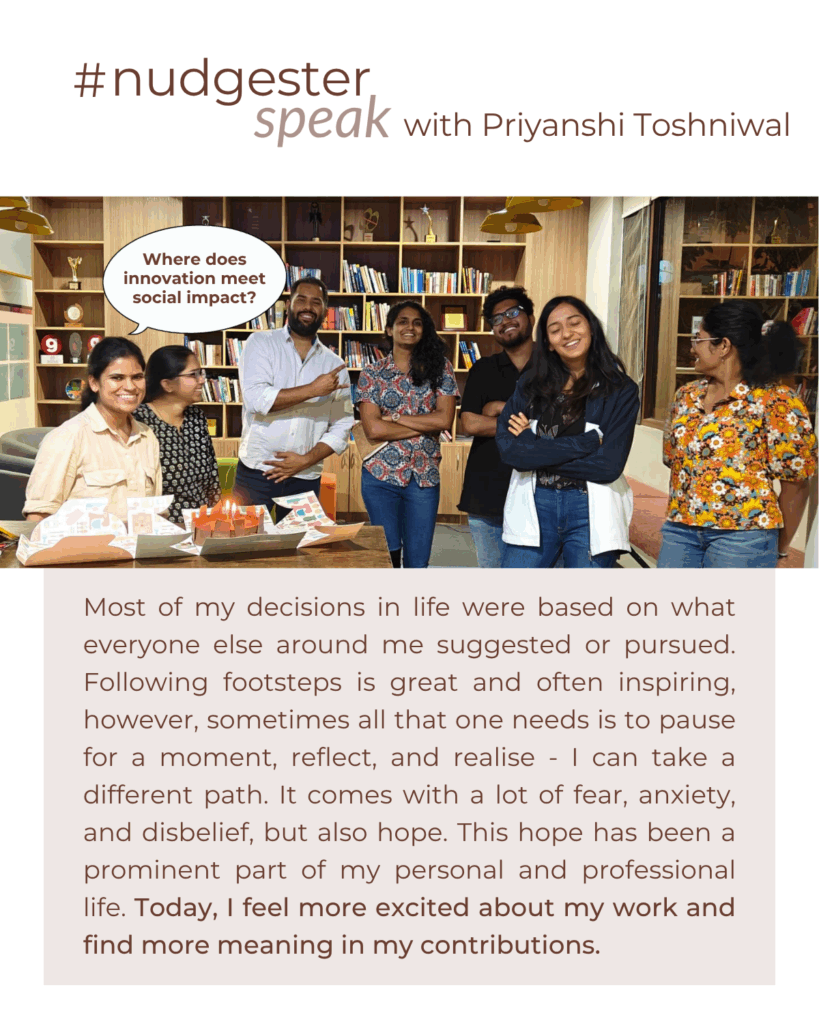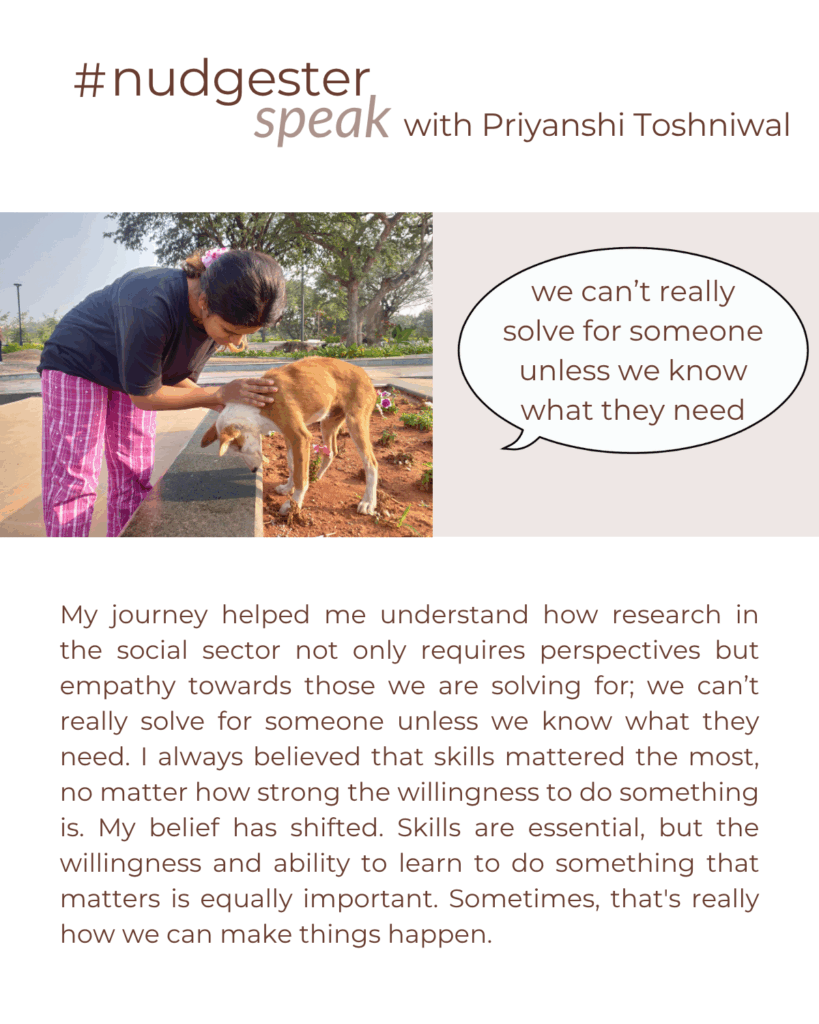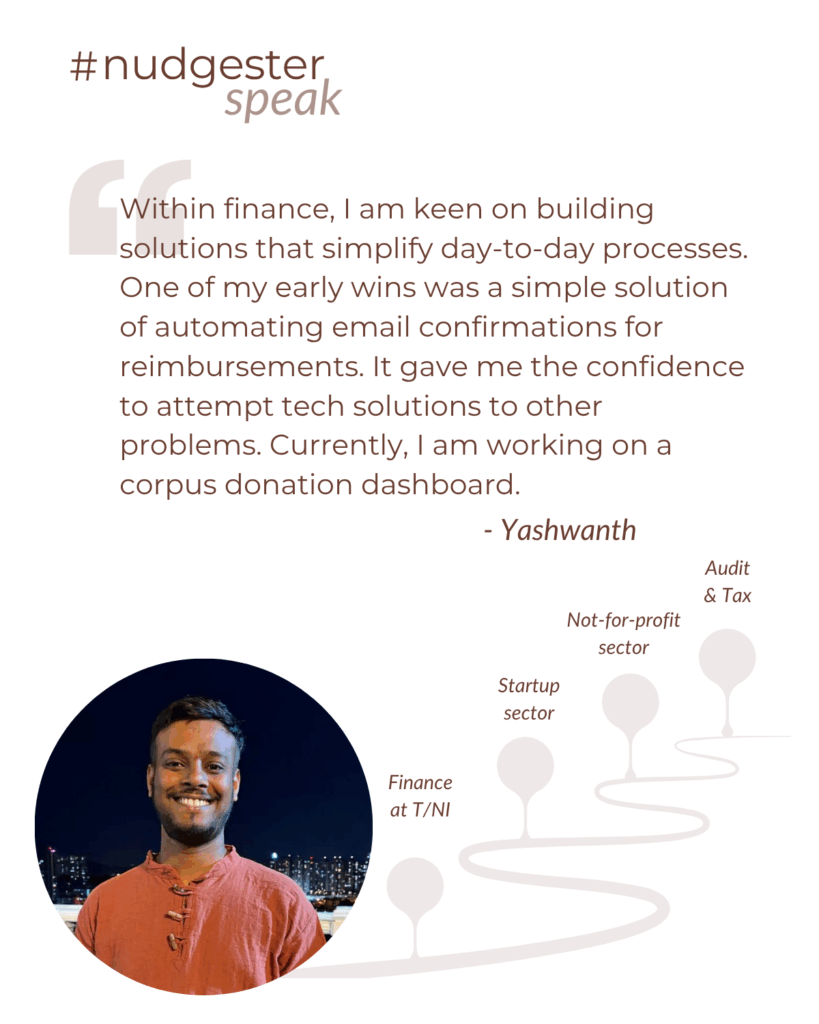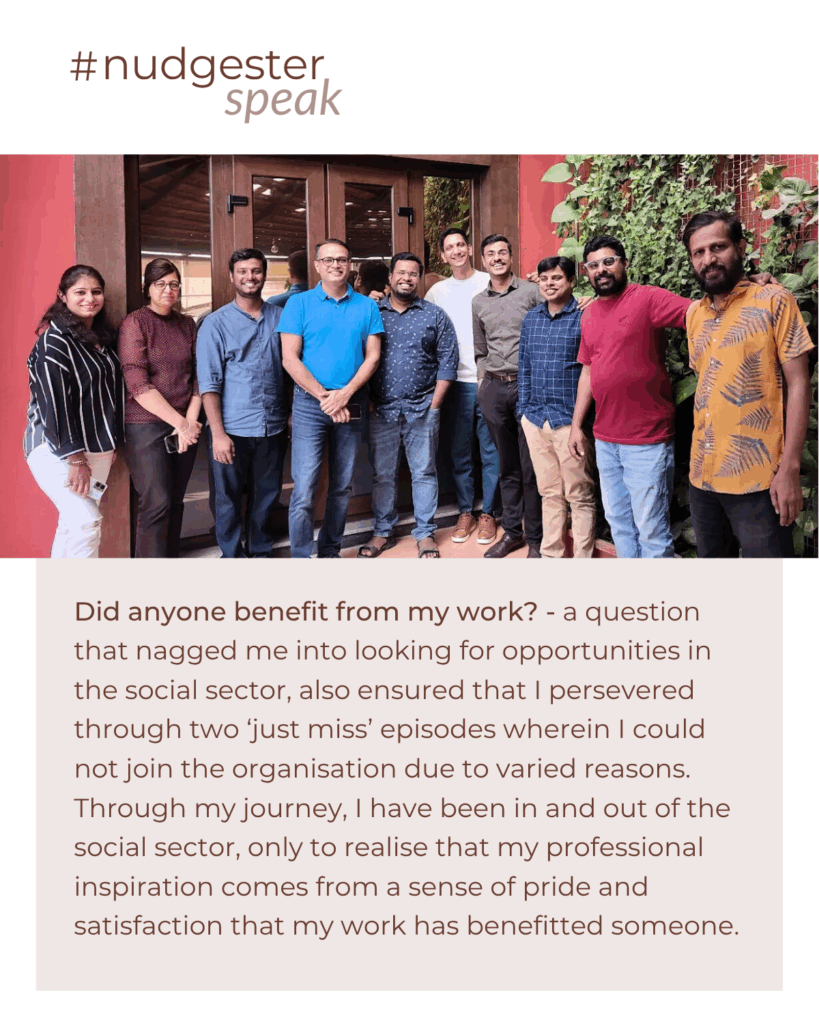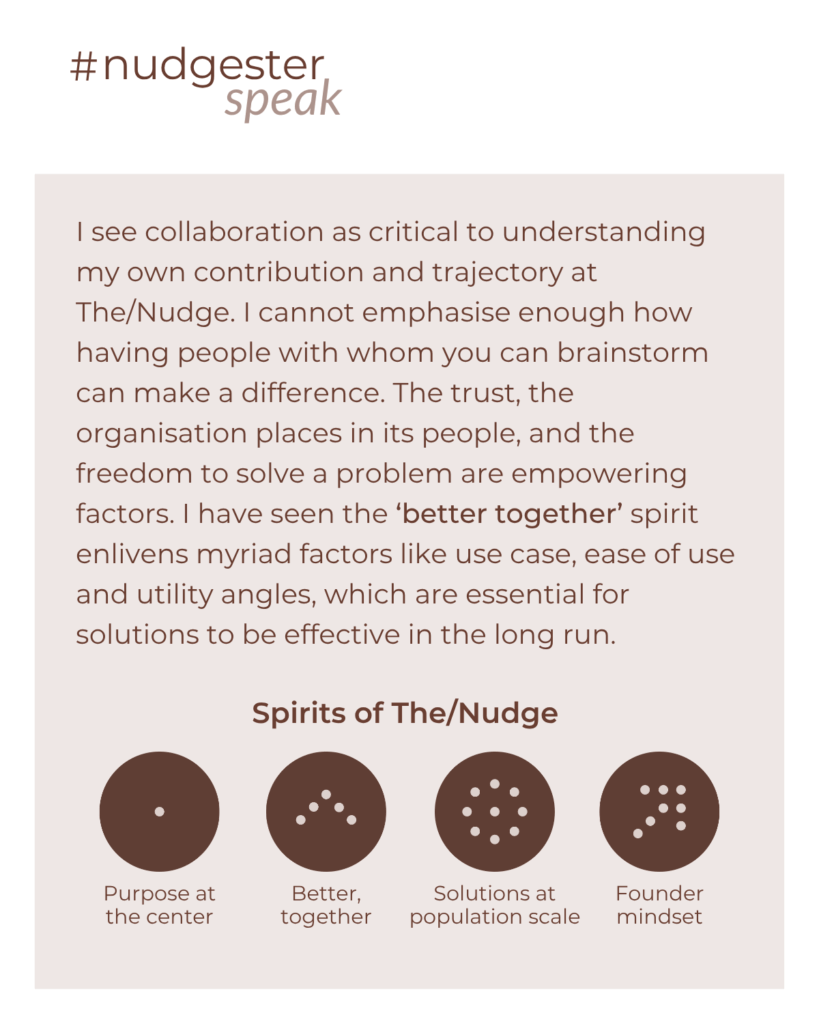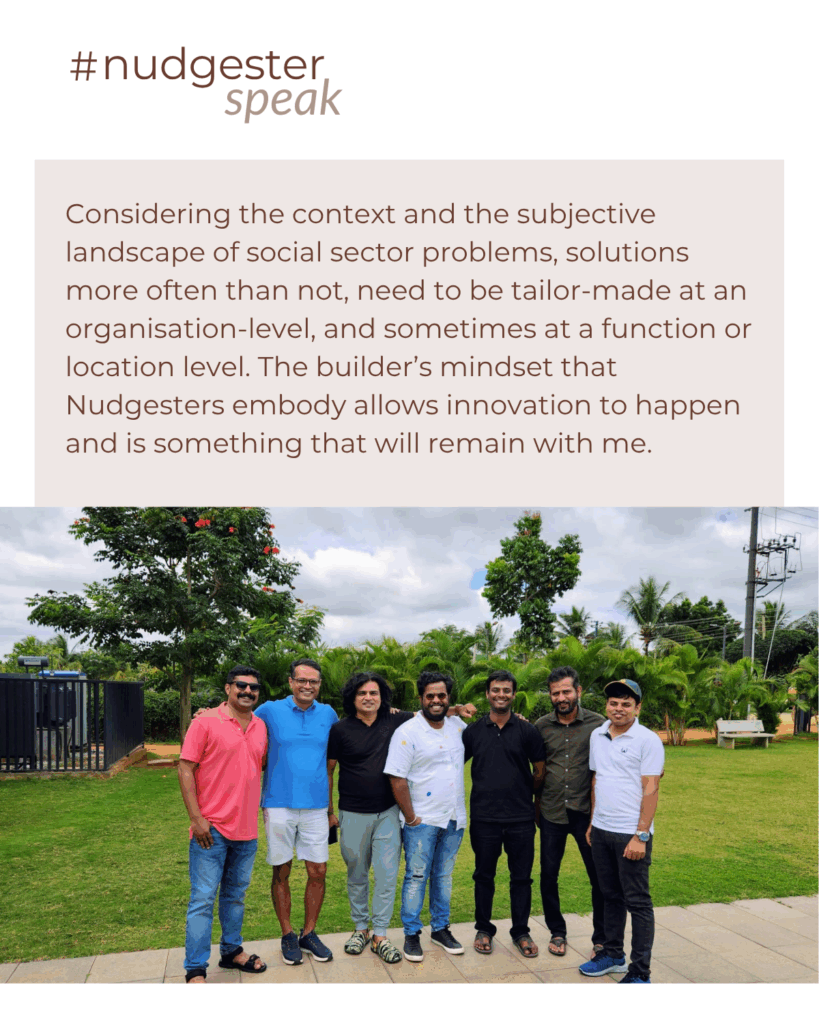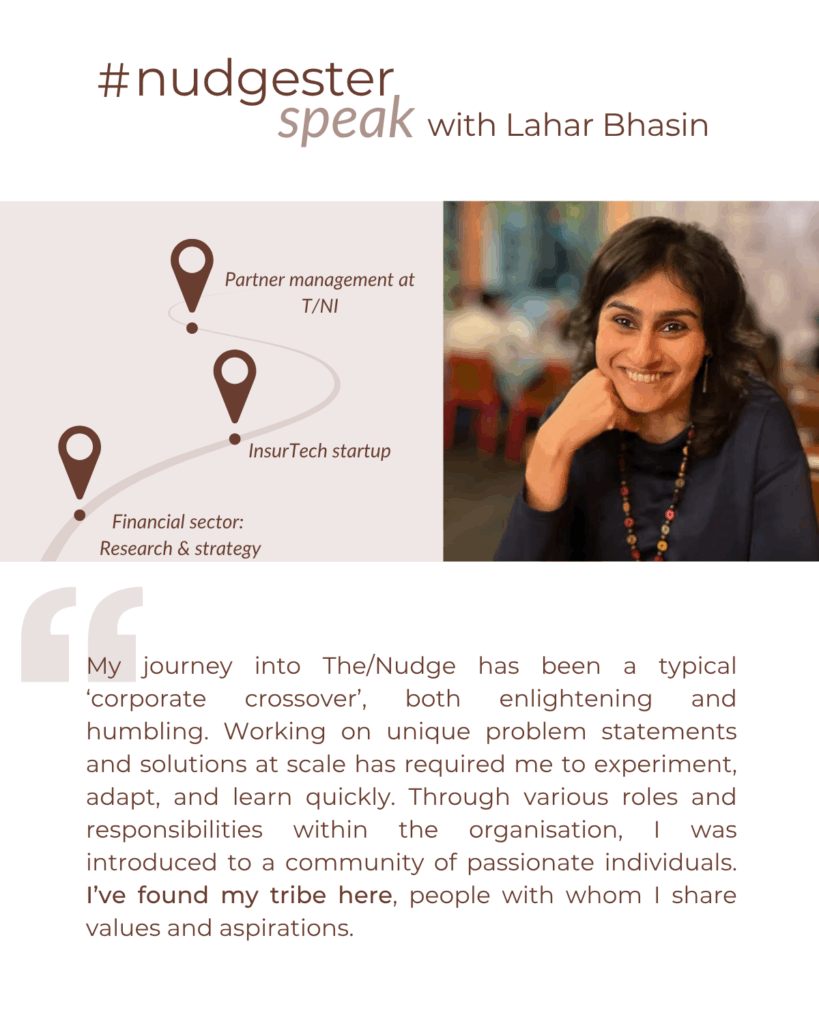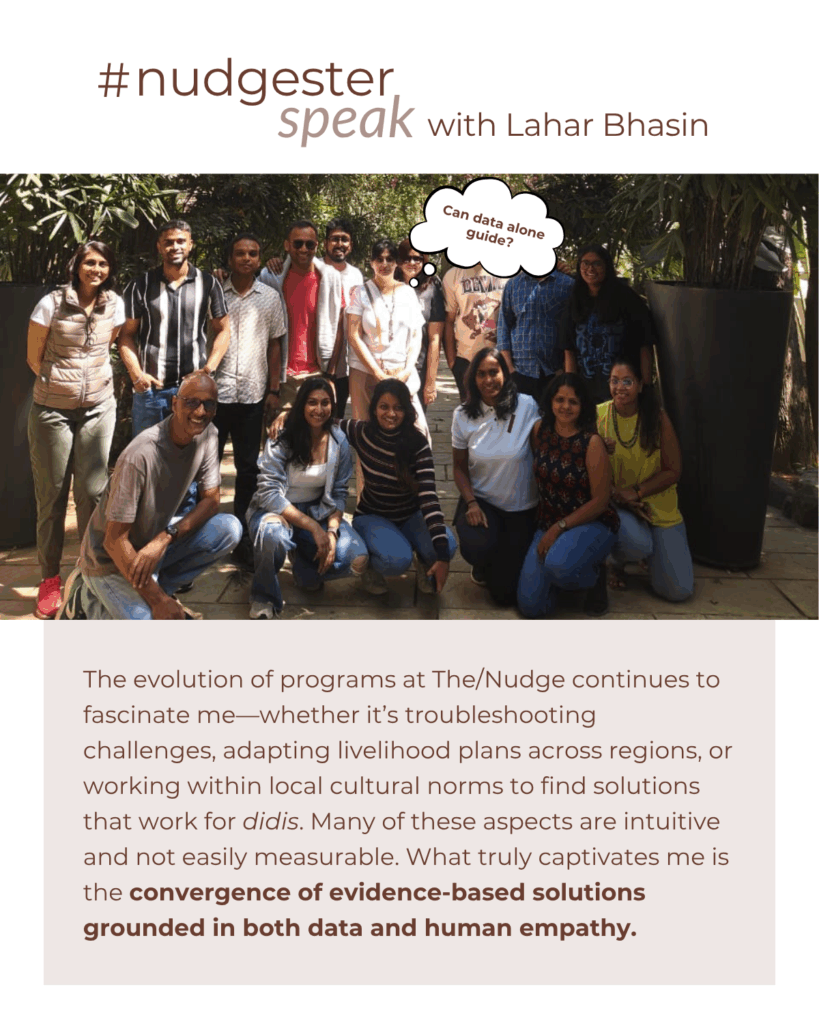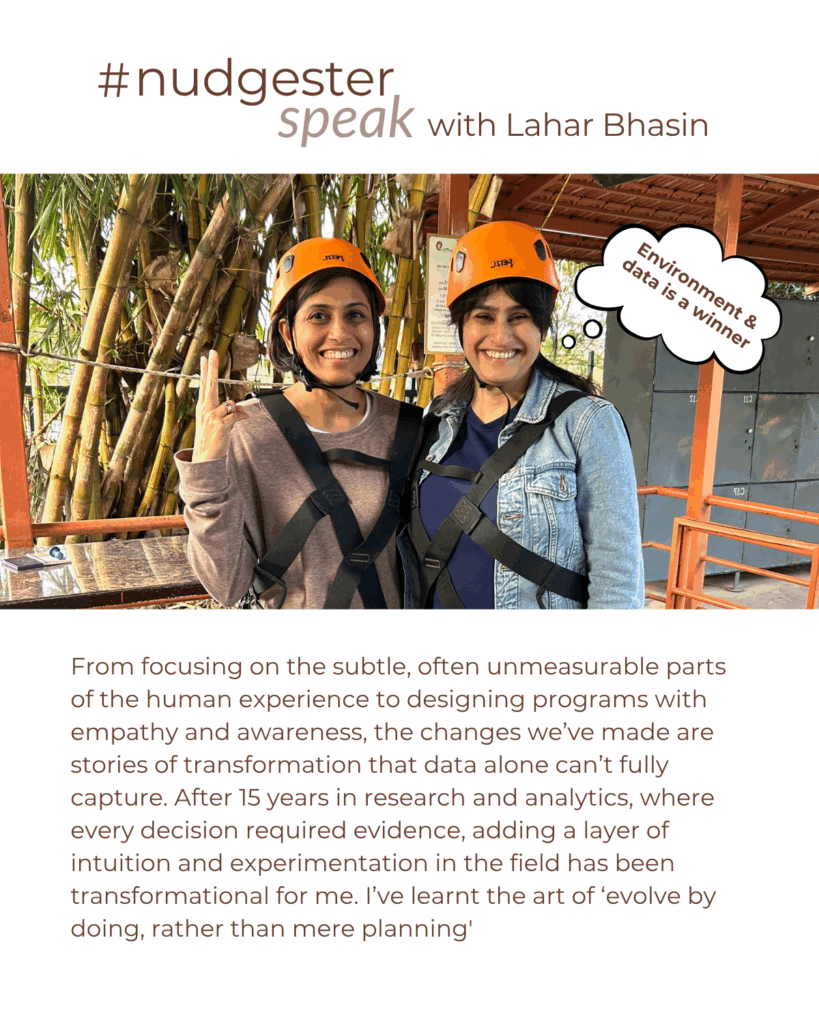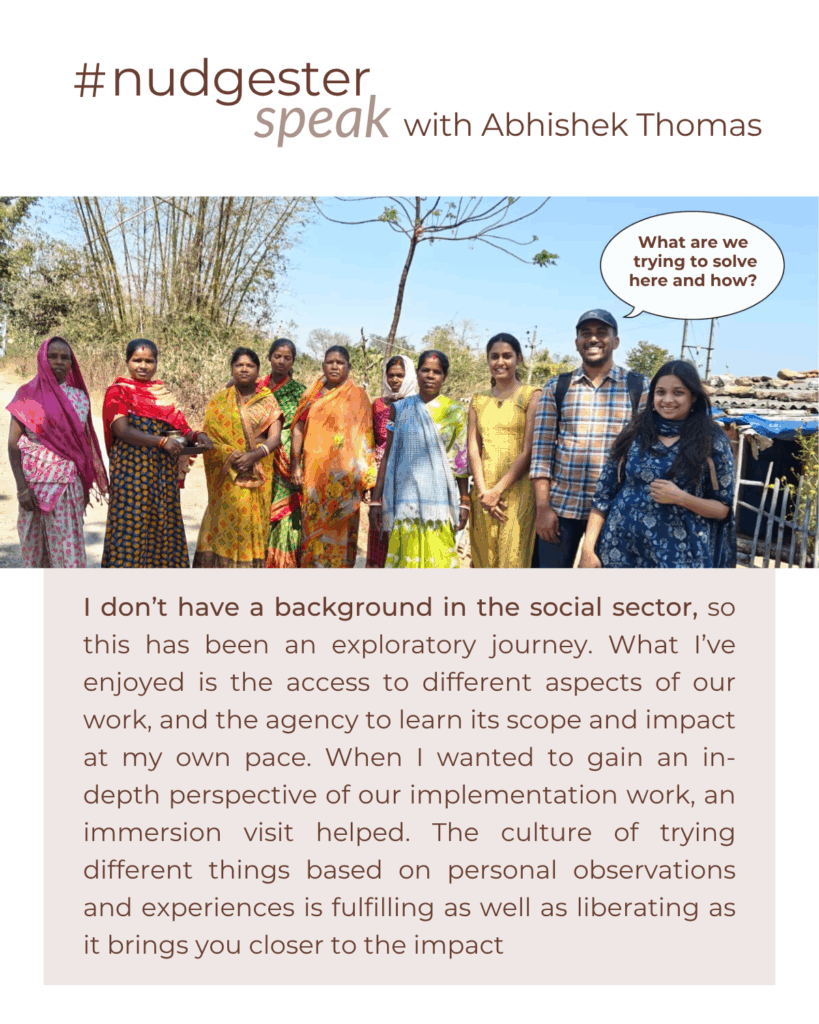When we think of our program participants (Didis), we often associate their journeys with livelihoods and economic inclusion. But their progress extends far beyond financial stability. As Didis take major strides in reaching their financial goals, other aspects of their lives also transform—how they spend their leisure time, their aspirations, future plans, and relationships within their social and political circles. These changes reflect the holistic impact of economic inclusion on their overall quality of life.
In Tripura, the Special Project TRIPTI is spearheading such transformations. Funded by the Ministry of Rural Development (GoI) and Deen Dayal Upadhyaya Antyodaya Yojana—National Rural Livelihood Mission, TRIPTI is implemented in the state by the Tripura Rural Livelihood Mission (TRLM). The program impacts 4000 of the most marginalised households, with participants from varied communities and across two districts. We explore how the program is helping shape aspirations and transform multiple dimensions of their lives through the experiences of three Didis from Tripura, who have been in The/Nudge Economic Inclusion Program (EIP) for nine months.
Kalkirung Reang Didi
Kalkirung Reang, 27 years old, lives in Dhanuram Para village in Ganganagar block (Dhalai district). She comes from the Reang tribal community and has two children. Her son studies in a government hostel on the Ganganagar block while her daughter lives with her. She and her husband pursue various sources of livelihood, including Jhum cultivation, daily wage labour, weaving, and collecting forest produce, yet they have no savings.
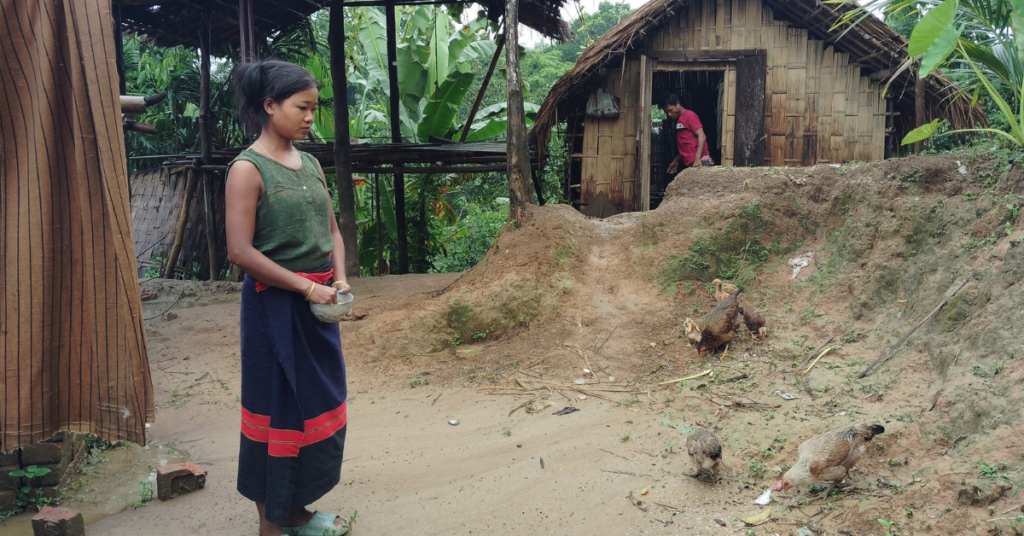
Kalkirung Didi dreams of becoming a role model in her community by improving her own life through pineapple cultivation. She envisions a future where her hard wrk translates into better education for her children and the ability to afford the simple joys of life, like nutritious meals. She also hopes to foster knowledge-sharing within her community, creating a supportive network for growth and learning.
Nito Rung Reang Didi
We often wonder what ₹1000 can buy us today, but to Nito Rung Reang Didi it was a monthly income to provide for a family of six. Didi is 40 years old and is from Horsing Para village in the Dasda block (North Tripura district). Her family’s primary source of earnings is Jhum cultivation and collecting non-timber forest produce like bamboo shoots and forest vegetables. Alongside her husband, she would sell these goods on the weekly market day to buy some basic necessities like dry fish, mustard oil, and other essentials.
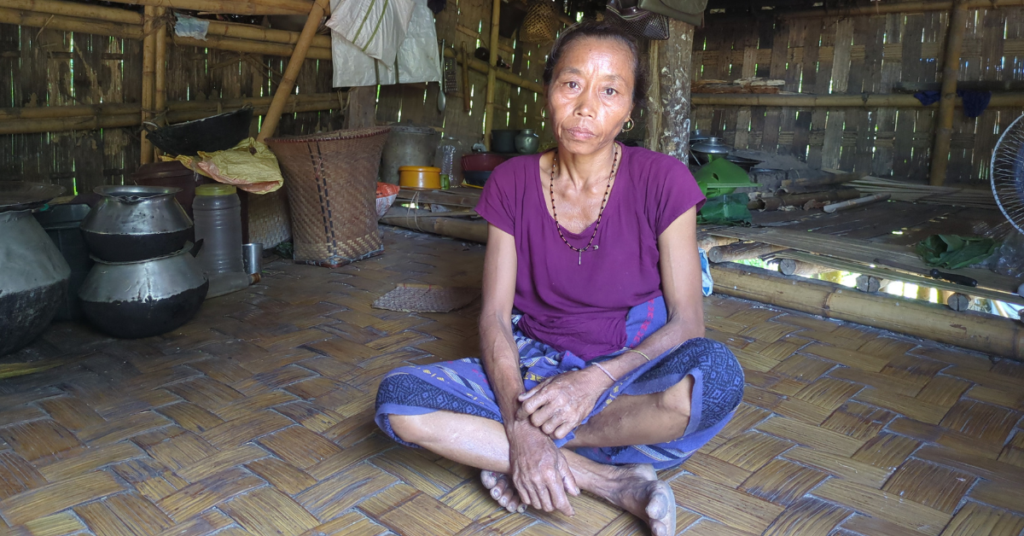
Nito Didi aspires to complete her pucca house, which she started building with partial funds from the PM Awas Yojana. She wishes for her children’s happiness but feels guilty for being unable to send them to school due to financial constraints. Adding to her challenges is a hearing impairment that makes communication difficult. Yet, she finds solace in sitting with other women from the community during small group meetings.
These meetings have not only given her a sense of belonging but have brought a profound change in her personal life. Nito shares that domestic violence from her husband, once a harsh reality, has significantly reduced since these gatherings began at her home through the TRIPTI project. For Nito, these small changes are the first steps toward a more secure and dignified life.
Bijoy Lakhi Debbarma Didi
At 55, Bijoy Lakhi Debbarma earns ₹2000 a month cleaning utensils at other people’s homes. Widowed two years ago, she now lives with her only child, in Krishna Kumar Para village in Ambassa block (Dhalai district). Without any assets or savings, their meals usually consist of rice and green leafy vegetables collected from the forest. In her moments of respite, she enjoys chatting with her immediate neighbours, finding small joys in their company.
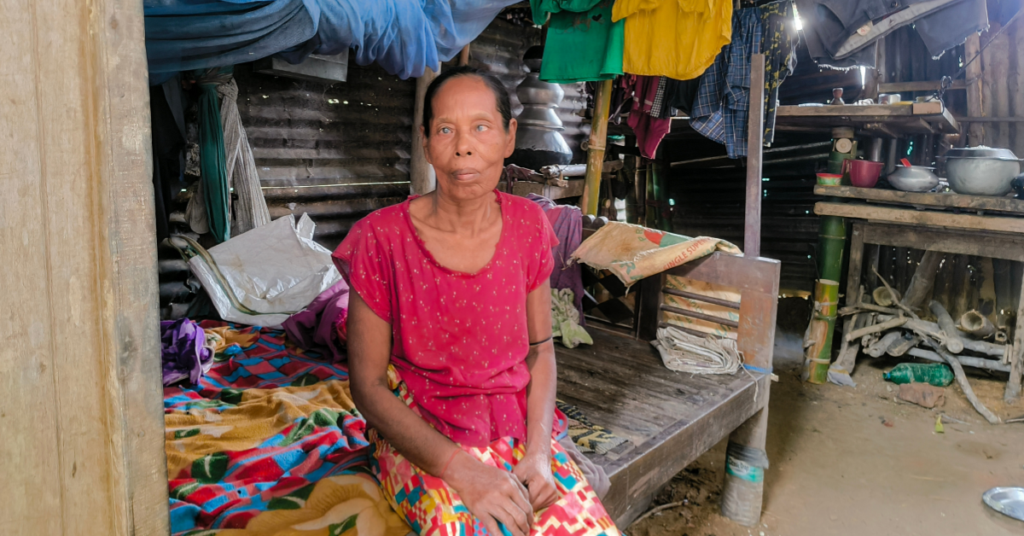
Didi had dreamt of educating her son, which would help him become established. However, the grip of extreme marginalisation forced her to abandon that dream when he had to drop out of school after class six to work as a daily wage labourer. Despite the challenges, Bijoy Didi aspires to rebuild her life with dignity, seeking to create her own livelihood and reduce her reliance on domestic work as she ages.
She also desires to build a pucca house by adding her resources to the ₹1.2 lakhs she received from PM AWAS Yojana. The fund helped her build the foundation and raise half of the walls. She wants to complete building her house so that they have a secure roof over their head.
Development has many interconnected facets, with economic inclusion and access to dignified livelihoods serving as key stepping stones. At the same time, progress in other areas, such as the decline of domestic violence, having a pucca house, and better nutrition, motivates and enables Didis to pursue their livelihood sources with greater passion and invest further in them. As the economic contribution within their household increases, Didis find greater respect and recognition both within their homes and in the larger community.
Story and photo credit: Raju Jamatia (Block Project Coordinator, EIP), Arun Mog and Shantibikash Chakma (Block Project Coordinator, EIP)

